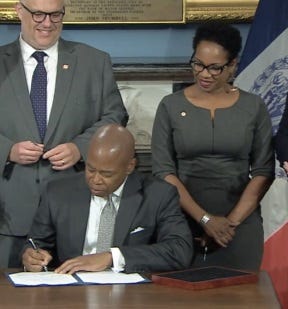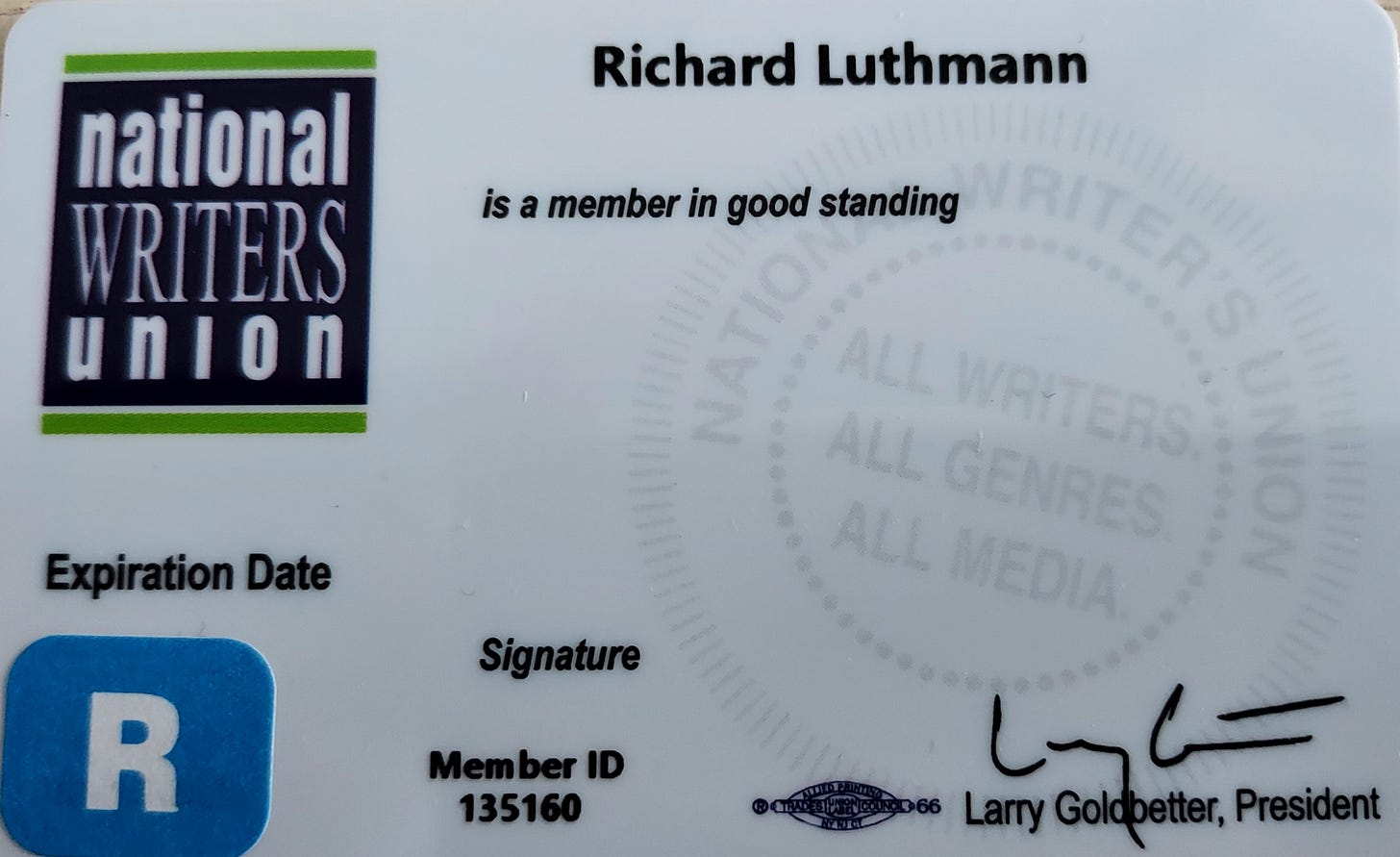NYC Councilwoman’s Association with Kevin Barry Love Under Scrutiny
Love, "Husband" of NYC Councilmember Kamillah Hanks, Made Threatening Calls, May Lead to Federal Investigation
Kevin Barry Love just can’t behave.
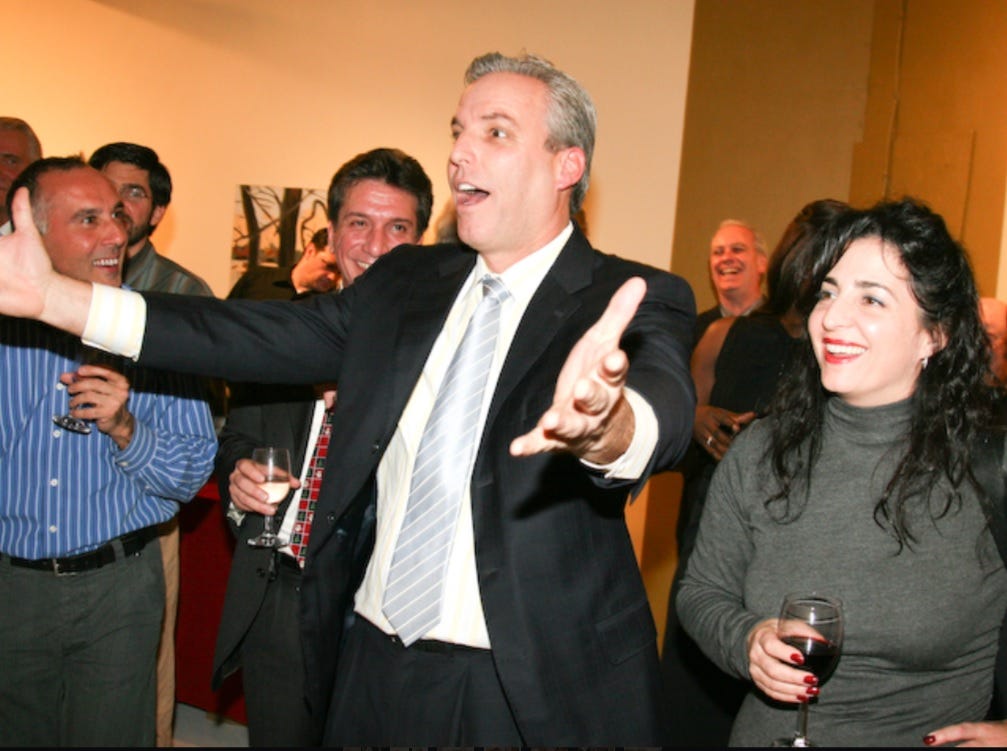
Love, a millionaire real estate investor, is the “husband” of NYC Councilmember Kamillah Hanks.
Hanks, her political campaign, and Love are all being sued by former attorney Richard Luthmann for over $86,000 in unpaid legal fees from 2017.
In a stroke of “genius,” Kevin Barry Love decided to take the matter into his own hands.
Recently, Love telephoned Luthmann’s lawyers and had a conversation - over a cell phone and across state lines - smacking of extortion of the FEDERAL variety.
In what can only be described as “shades of Michael Avennati,” Kevin Barry Love called Luthmann’s lawyers. He threatened them with criminal charges and attorney grievances, using the largesse of his wife’s elected office.
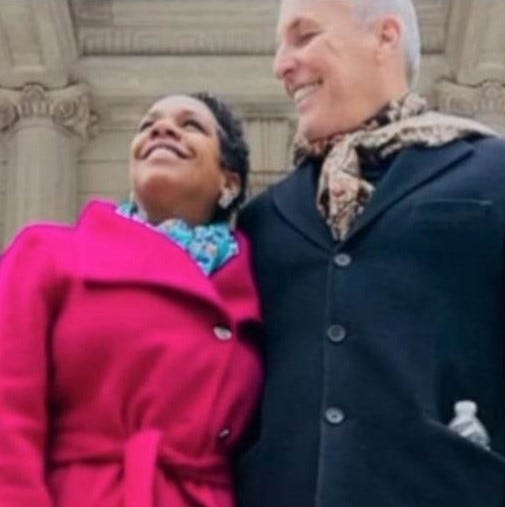
While Love may think he’s the smartest person in any room, his actions show he assuredly is not. His conduct may very well amount to federal criminal extortion charges.
Kevin Barry Love was miffed that Luthmann made him look like a total idiot in front of the entire NYC Council, the Mayor’s Office, and the “Elections Department” by showing the world that the Councilmember and her “husband” were deadbeats.
Trying to outsmart Luthmann’s lawyer, Love admitted that Luthmann did work for Councilmember Hanks, her political campaign, and him and that they were, in fact, deadbeats.
The “Elections Department,” properly known as the NYC Campaign Finance Board, is tasked under the NYC Charter with policing shady political deals and is a named defendant in Luthmann’s lawsuit.
Love admitted that Hanks’ campaign paid a $1,650 partial retainer for over 100 hours worth of work. Millionaire Kevin Barry Love thinks lawyers should work for $1.65 an hour.
And Love has a pattern of labor-related abuses from his time as the chairman of the Downtown Staten Island Council, where at least one six-figure settlement was paid to a former employee.
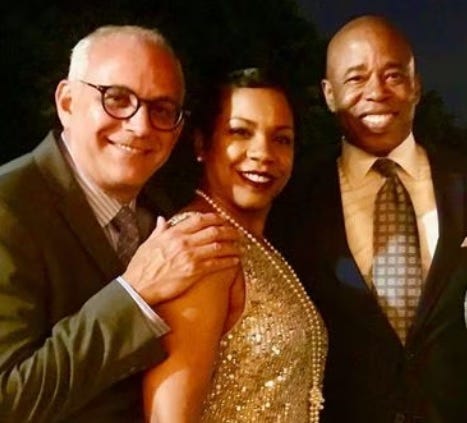
Allegations of non-payment continue to mount against the Hanks campaign. Love pressed one worker to take $1,250 for over 100 hours of work, or $1.25 an hour.
A complaint was filed with the NYC Campaign Finance Board. Sources say the investigation is stalled due to pressure from City Hall. It is unclear whether it is from the Mayor’s Office or the Speaker’s Office.
Councilmember Hanks is the Chair of the Committee on Public Safety and serves as a member of the Committees on Civil Service and Labor, Education, Environmental Protection, Finance, Land Use, and the Subcommittee on Zoning and Franchises.
Love is apoplectic that Luthmann would have the audacity to call attention to apparent campaign finance violations, fraud, and other serious transgressions in his “wife,” Council Member Kamillah Hank’s campaign filings.
Kevin Barry Love is notorious in the truest sense of the word. The man appears to be a total buffoon, a cartoon character. Any credibility of his wife, the Staten Island Councilwoman, quickly dissipates when he enters the room.
Sources close to the NYC Mayor’s Office have said that plans for Eric Adams to campaign with Kamillah Hanks this year have been put “on hold” based on recent controversies, including the Luthmann lawsuit.
In a profanity-laced tirade, Kevin Barry Love told Luthmann’s lawyers to serve him and that they “better come big.”
This is the second time Luthmann has made Kevin Barry Love look like a fool. The first time was when Love told the NY Post Luthmann had no proof. Within hours, Luthmann published the evidence, including court documents and emails.
As comical as Love’s actions may seem, they are very serious. This man is using the power of his wife’s office to threaten people.
While attorneys can defend themselves, what is Kevin Barry Love doing to regular people?
Allegations have already been made that Love and Hanks were complicit in criminal activity related to Hanks’ failed 2017 City Council Campaign against Debi Rose.
No one should be able to use a public office as part of a pattern of extortion or personal enrichment.
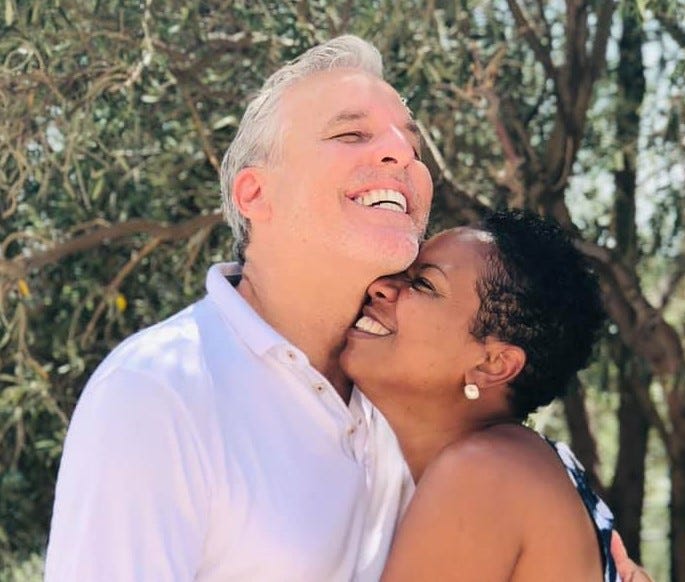
An Official Complaint was filed based on Kevin Barry Love’s threats, which smack of federal crimes.
Apparently, Kevin Barry Love is right about one thing. The FBI and the DOJ are involved because the complete audio was sent to both of them.
Read the Official Complaint below:
OFFICIAL COMPLAINT
18 U.S.C. § 875. Interstate communications
(d) Whoever, with intent to extort from any person, firm, association, or corporation, any money or other thing of value, transmits in interstate or foreign commerce any communication containing any threat to injure the property or reputation of the addressee or of another or the reputation of a deceased person or any threat to accuse the addressee or any other person of a crime, shall be fined under this title or imprisoned not more than two years, or both.
On April 4, 2023, KEVIN BARRY LOVE (“Love”) called ALMAGNO LAW, INC., the law office of Lawrence P. Almagno, Jr., Esq. (“Almagno”). Also present was Jesse Duarte, Esq. The law office is located in Cranston, Rhode Island. The law firm’s telephone number is (401) 946-4529. Almagno returned the call to Love, who proceeded to threaten Almagno.
A recording is attached.
During the conversation, Love made specific threats using the telephone and knowingly did so across state lines.
Love admits he is in the State of New York while making the call.
The sole purpose of the call was a communication threatening to injure the property and reputation of Almagno and accuse Almagno of a crime.
Love states the FBI and DOJ have already been contacted and insinuates that he can cause these governmental agencies to act on his behalf.
Love threatens Almagno’s law license and livelihood because he practiced his profession, by filing a collections action.
There was no attempt to settle or resolve the case. Love’s entire purpose was to extort, threaten, and intimidate.
Love has a history of threats and intimidation.
Love’s paramour (who he falsely claims is his wife), Kamillah Hanks, is an NYC Councilwoman.
Love is her de facto agent and “enforcer.”
Love has already engaged conduct that smacks of extortion on numerous occasions. One witness [NAME WITHHELD] worked on Hank’s 2017 campaign and was owed $14,000. [NAME WITHHELD] suffered a heart attack. Days later, Love “took [NAME WITHHELD] for a ride” in Brooklyn and tried to force him to take $1,250 to “settle” the debt. [NAME WITHHELD] couldn’t leave the car because of his health conditions.
Because of Love’s extortionate threats, [NAME WITHHELD] is fearful and has never been paid for his work.
Love’s statements to Almagno, witnessed by Duarte, are clearly threatening and an attempt at extortion across state lines.
Focus in determining whether threat has been made is on whether defendant reasonably should have foreseen that statement he uttered would be taken as threat by those to whom it was made. United States v. Fulmer, 108 F.3d 1486, 46 Fed. R. Evid. Serv. (CBC) 411, 1997 U.S. App. LEXIS 5869 (1st Cir. 1997).
Defendant made at least two threats to operator of hotline dedicated to finding missing children, where during eight telephone calls over two-day period he told operator continuing saga of how he had abducted and sexually forced himself on his fourteen-year-old stepdaughter, though he was only playing elaborate prank. United States v. Freeman, 176 F.3d 575, 1999 U.S. App. LEXIS 9316 (1st Cir. 1999).
First Circuit saw no reason to depart from its prior law that objective test of defendant’s intent was used from defendant’s vantage point under this statute. United States v. Clemens, 738 F.3d 1, 2013 U.S. App. LEXIS 24488 (1st Cir. 2013).
Objective of party employing fear of economic loss or damage to reputation will have bearing on lawfulness of its use, and it is material whether defendant had claim of right to money demanded; where threat of harm to person’s reputation seeks money or property to which threatener does not have, and cannot reasonably believe she has, claim of right, or where threat has no nexus to plausible claim of right, threat is inherently wrongful and its transmission in interstate commerce is prohibited by 18 USCS § 875(d). United States v. Jackson, 180 F.3d 55, 52 Fed. R. Evid. Serv. (CBC) 639, 1999 U.S. App. LEXIS 11906 (2d Cir.).
It is not whether means of communication chosen by defendant caused threat to reach “indefinite and unknown audience,” but whether defendant intended to communicate threat to victim through chosen means. United States v. Kelner, 534 F.2d 1020, 1976 U.S. App. LEXIS 11878 (2d Cir.).
Although jury was erroneously instructed that communicating threat only required that reasonable person would regard communication as threat, error was harmless since evidence clearly showed that defendant had subjective intent to issue threat or knowledge that communication would be viewed as threat. United States v. Choudhry, 649 Fed. Appx. 60, 2016 U.S. App. LEXIS 9215 (2d Cir. 2016).
TO:
Providence Rhode Island FBI Office
10 Dorrance Street, 900
Providence, Rhode Island, 02903
New York City FBI Office
26 Federal Plaza, 23rd Floor
New York, NY 10278-0004
Richard Luthmann is a writer, commentator, satirist, and investigative journalist with degrees from Columbia University and the University of Miami. Once a fixture in New York City and State politics, Luthmann is a recovering attorney who lives in Southwest Florida and a proud member of the National Writers Union.
Drop me a line if you are a victim of the “Swamp” of corrupt politicians, lawyers, judges, or courts. I write about criminal justice, courts, prisons, and reform.
"Nihil est incertius vulgo, nihil obscurius voluntate hominum, nihil fallacius ratione tota comitiorum.” (Nothing is more unpredictable than the mob, nothing more obscure than public opinion, nothing more deceptive than the whole political system.)
~ Marcus Tullius Cicero
For Article Ideas, Tips, or Help: richard.luthmann@protonmail.com or call 239-287-6352.
The news media is a critical check on the powerful, serving as a watchdog to hold elected officials and other public figures accountable for their actions. The media was first called the fourth estate in 1821 by Edmund Burke, who wanted to point out the power of the press. The press plays a crucial role in providing citizens with access to information about what is happening in government, as well as shining a light on corruption, abuse of power, and other forms of wrongdoing.

